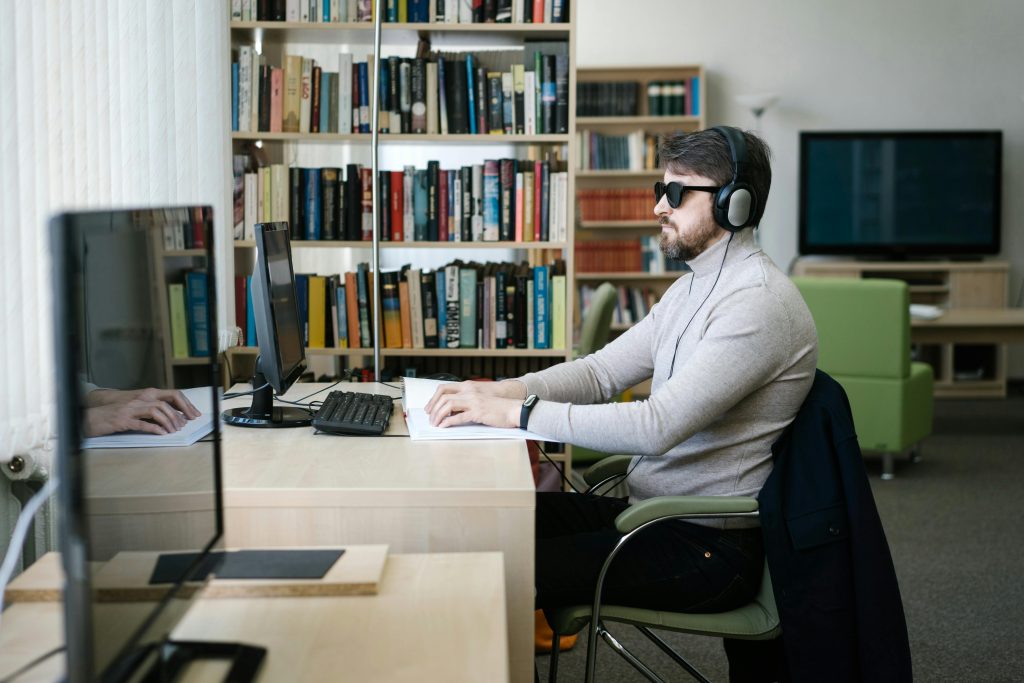Title: Troubleshooting Your Desktop PC: Understanding and Fixing Sudden Shut Downs
Introduction
Computers have become an indispensable part of our daily lives, serving as gateways to work, play, and connectivity. When they malfunction, it can disrupt our lives significantly. If you’re experiencing sudden shutdowns, particularly after hearing unusual noises from your CPU fan, it can be both frustrating and worrying. This blog post aims to offer a comprehensive guide into understanding why your PC might be turning off unexpectedly, exploring the causes, and suggesting effective solutions. We’ll delve into the role of cooling systems, symptoms of overheating, and other potential issues that could be causing your computer to shut down.
Understanding CPU and Cooling Systems
Central Processing Units (CPUs) are the heart of any computer. They handle millions of calculations per second, generating heat as a byproduct. To keep them functioning optimally and prevent damage, efficient cooling systems are essential. These typically consist of a heatsink and fan combination, which work together to disperse heat away from the CPU.
Signs of Cooling System Failure
When a CPU cooling system begins to falter, it often causes symptoms long before a total breakdown occurs. The unusual noise you heard from your fan was one such early warning sign. Grinding or rattling noises often indicate that the fan bearings are wearing out or debris has become lodged in the fan. Over time, this can severely impair the fan’s ability to cool the CPU, leading to overheating.
Common signs of a failing cooling system include:
-
Increased Noise Levels: Fans should run smoothly and quietly. Any grinding, clicking, or buzzing is a red flag.
-
Performance Issues: A hot CPU will throttle performance to reduce heat generation, leading to noticeable slowdowns during intensive tasks like gaming or video editing.
-
Unexpected Shutdowns: To protect itself from overheating, a computer will often power down automatically when temperatures reach critical levels.
Diagnosing Overheating Issues
Before jumping to conclusions, it’s important to diagnose whether overheating is indeed the cause of your PC’s problems. There are several steps you can take:
-
Check System Temperatures: Use software like Core Temp, HWMonitor, or SpeedFan to monitor the temperatures of your CPU and other components. Ideally, your CPU should run between 50-70°C under load.
-
Inspect Physical Components: Turn off your computer and open the case. Check for dust buildup around the fan and heatsink. Dust can insulate heat or block airflow, contributing to overheating.
-
Listen to the Fan: With the case open, turn your computer on and listen. If the fan isn’t spinning at all or is struggling to maintain a consistent speed, it might need cleaning or replacement.
Other Potential Causes for Shutdowns
While overheating is a common issue, it’s not the only reason your PC might be shutting down. Here are other possibilities:
-
Power Supply Issues: An unreliable or failing power supply (PSU) might not deliver consistent power, leading to shutdowns. This can happen if the PSU is old, has insufficient wattage for your system, or has a faulty component.
-
Hardware Failures: Components like RAM, graphics cards, or motherboards can also fail and cause your system to restart or turn off without warning. Running hardware diagnostics tools or swapping components can help identify the culprit.
-
Software Problems: Corrupted files or viruses can crash your system. Ensuring your operating system and drivers are up-to-date and running antivirus scans can mitigate this risk.
-
BIOS Settings: Incorrect BIOS settings, particularly those related to CPU overclocking or power management, can cause instability. Resetting to default settings may resolve the issue.
Solutions and Repairs
Once you’ve diagnosed the issue, it’s time to explore solutions. Here’s what you can do depending on the problem identified:
- Repairing the Cooling System:
- Cleaning: Regularly clean dust from the fans and heatsinks using compressed air or a soft brush.
- Replacing the Fan: If the fan is grinding or not spinning correctly, replacement may be necessary. New fans are relatively inexpensive and can significantly improve cooling performance.
-
Upgrading the Cooling System: Consider liquid cooling solutions if you’re using high-performance hardware or overclocking.
-
Addressing Power Supply Problems:
- Testing: Use a multimeter or a PSU tester to verify your power supply’s output.
-
Replacing the PSU: Choose a reliable, higher wattage unit that meets or exceeds your system’s requirements.
-
Resolving Hardware Failures:
- Reseating Components: Sometimes, simply reseating RAM or GPU can solve issues.
-
Running Diagnostics: Use tools like MemTest86 for RAM or diagnostic software from manufacturers for other components.
-
Fixing Software and BIOS Issues:
- Software Updates and Scans: Keep your system updated and conduct regular malware scans.
- BIOS Reset: Use the BIOS settings menu during startup to reset to factory defaults.
Preventive Measures
Preventive maintenance can extend the life of your PC and maintain peak performance. Here are some tips:
-
Regular Cleaning: Every few months, clean your PC’s interior. Dust can significantly impact temperature and performance over time.
-
Monitor Performance and Temperatures: Use software tools to keep an eye on your system’s health, allowing you to act before small issues escalate.
-
Adequate Ventilation: Ensure your PC case has good airflow. Position it in a well-ventilated area, and consider adding additional case fans if necessary.
-
Surge Protection: Use a quality surge protector to safeguard your system from power fluctuations.
Conclusion
Sudden shutdowns can be distressing, especially when accompanied by ominous noises. By understanding potential causes, such as overheating, power supply issues, or component failures, you can methodically diagnose and resolve these problems. Regular maintenance and monitoring can prevent future issues, ensuring your PC runs smoothly for years. Remember, if troubleshooting feels beyond your expertise, seeking professional assistance can save both time and stress, getting you back to using your PC with confidence and efficiency.
Share this content:




Hi there,
Many factors can cause a PC to turn off unexpectedly, especially if you notice unusual noises from the CPU fan, which may indicate cooling issues. I recommend starting with these troubleshooting steps:
If overheating is confirmed, improving cooling—such as replacing or upgrading fans, cleaning heatsinks, or even considering liquid cooling—can prevent shut downs. Also, verify BIOS settings to ensure no overclock